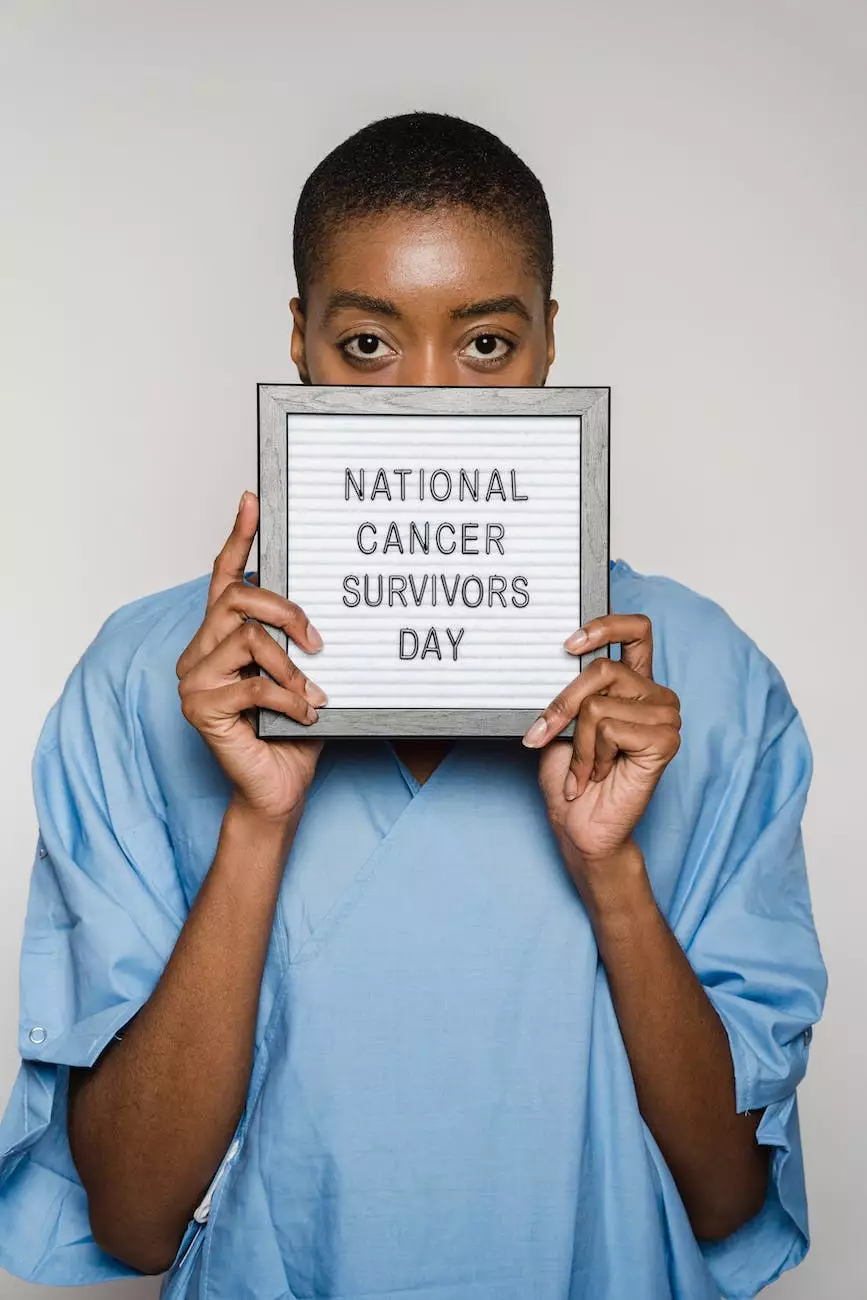Cervical Cancer Survivors: Here's What to Expect
About Summit Cancer
Introduction
Welcome to Sibel Blau's comprehensive guide for cervical cancer survivors. We understand the challenges and uncertainties you face during and after your treatment. This resource aims to provide you with valuable insights and practical advice to help you navigate through this chapter of your life with confidence and empowerment.
Understanding Cervical Cancer
Cervical cancer is a type of cancer that develops in the cervix, the lower part of the uterus. It is one of the most common cancers among women worldwide. Being diagnosed with cervical cancer can be overwhelming, but it is essential to remember that you are not alone in this journey.
At Sibel Blau, we believe in empowering cervical cancer survivors with knowledge about their condition. Understanding the stages, types, and treatment options available is vital for making informed decisions regarding your healthcare. Our expert team of oncologists and healthcare professionals is dedicated to providing you with the support and information you need.
Treatment Journey
The treatment journey for cervical cancer survivors can be challenging, but with the right support and guidance, you can overcome any obstacles that come your way. Let's take a closer look at some key aspects of the treatment journey:
1. Diagnosis and Staging
Proper diagnosis and staging are crucial in determining the best treatment plan for cervical cancer. Your healthcare provider will conduct various tests, such as a Pap smear, colposcopy, biopsy, and imaging tests, to assess the extent of the cancer. Understanding the staging process can help you gain insights into your condition and make informed decisions about your treatment.
2. Treatment Options
When it comes to treating cervical cancer, several options may be available depending on the stage and type of cancer. Some common treatment modalities include:
- Surgery: Surgical procedures, such as a hysterectomy or removal of nearby lymph nodes, may be recommended.
- Radiation Therapy: High-energy X-rays or radioactive substances are used to destroy cancer cells.
- Chemotherapy: Powerful drugs are administered intravenously, orally, or through injections to destroy cancer cells.
- Targeted Therapy: This type of treatment uses drugs that specifically target cancer cells to slow down their growth.
It is crucial to discuss all available treatment options with your healthcare provider to determine the most suitable approach for your specific case.
3. Managing Side Effects
During and after treatment, you may experience various side effects that can impact your quality of life. Common side effects include fatigue, nausea, hair loss, and emotional distress. At Sibel Blau, we understand the importance of managing these side effects effectively. Our oncology support team will work closely with you to develop strategies to minimize and cope with these challenges. Additionally, support groups and counseling services are available to provide emotional support throughout your journey.
4. Follow-Up Care and Survivorship
After completing your treatment, regular follow-up appointments are necessary to monitor your progress and address any concerns. Your healthcare provider will conduct physical examinations, imaging tests, and may order blood work to ensure that you remain cancer-free. We encourage cervical cancer survivors to prioritize routine screenings and follow all recommended guidelines for long-term survivorship.
Embracing Life After Cervical Cancer
Surviving cervical cancer is a significant milestone, and embracing life after cancer requires a holistic approach to physical, emotional, and mental well-being. Here are some key aspects to consider:
1. Healthy Lifestyle Choices
Adopting a healthy lifestyle is essential for maintaining overall well-being. Focus on consuming a nutritious diet, engaging in regular exercise, and avoiding tobacco and excessive alcohol consumption. These lifestyle choices can contribute to your overall health and decrease the risk of cancer recurrence.
2. Emotional Support
At Sibel Blau, we recognize the importance of emotional support for cervical cancer survivors. Feelings of anxiety, fear, and uncertainty are common even after successful treatment. Engaging in support groups, counseling, or therapy sessions can provide a safe space to share experiences, connect with others who have faced similar challenges, and develop valuable coping mechanisms.
3. Fertility Preservation and Family Planning
During treatment, fertility preservation options may be available to women who wish to have children in the future. If fertility preservation was not discussed before treatment, it is important to have a conversation with your healthcare provider about your fertility options after treatment. Additionally, if you have already completed your family, discussing contraceptive methods and family planning with your healthcare provider is equally important.
4. Learning to Thrive
Surviving cervical cancer offers a unique perspective on life. It is an opportunity to embrace every precious moment and make conscious choices that align with your values and aspirations. Explore new hobbies, set and achieve goals, and prioritize self-care to create a fulfilling and purpose-driven life.
Conclusion
As a cervical cancer survivor, your journey is filled with strength, resilience, and hope. The Sibel Blau team is here to support you every step of the way, providing comprehensive information, guidance, and personalized care. Remember, you are not defined by your cancer diagnosis, but by your unwavering spirit and determination to live a fulfilling life beyond cancer.
For more information or to schedule an appointment with our expert team, please visit our website or contact us directly. Together, let us empower and inspire cervical cancer survivors to thrive.




